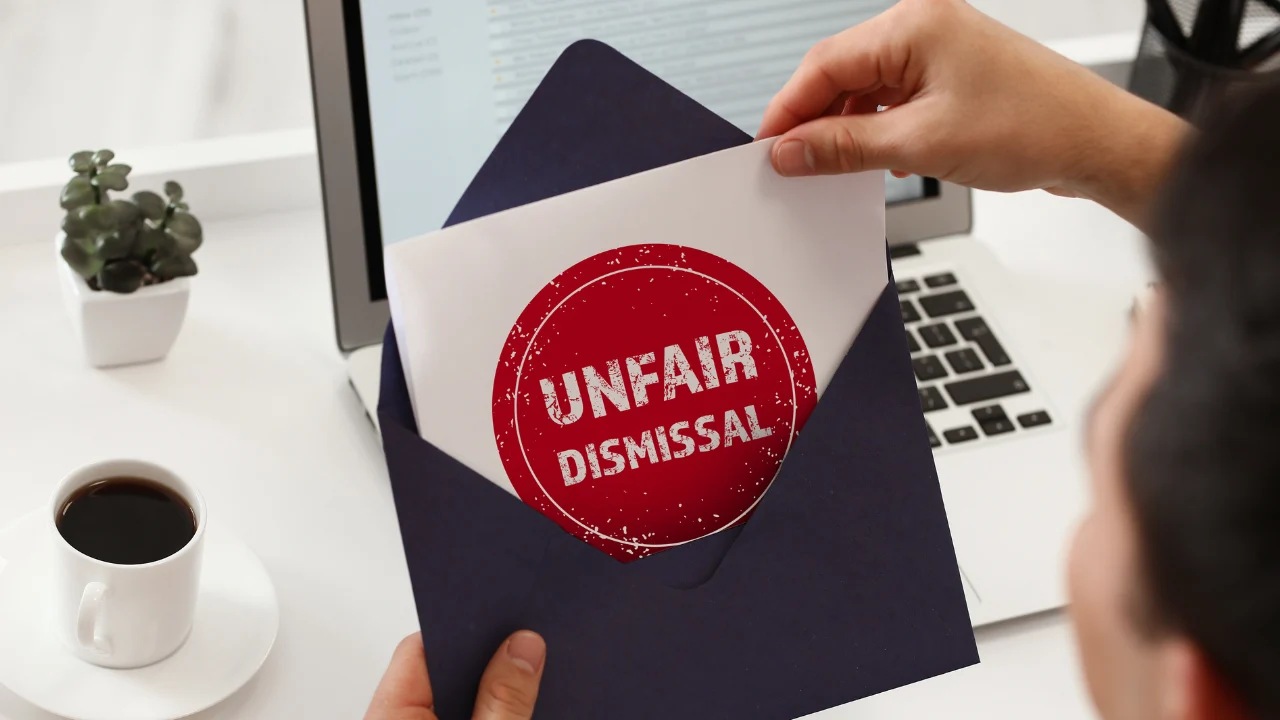
Navigating your unfair dismissal process – The essentials
Published on July 17, 2023 by Kate Latham
Employees in Australia are protected by laws that safeguard their rights against unfair dismissals. If you believe that you have been unjustly terminated, you may have the option to file an unfair dismissal claim. This article provides an overview of that process, including key steps, legal considerations, and the role of the Fair Work Commission.
Step 1 – Understanding Eligibility Criteria
Before proceeding with an unfair dismissal claim, it’s essential to determine if you meet the eligibility criteria outlined in the Fair Work Act 2009 (Cth). The criteria includes:
- Completing the minimum employment period: Generally, employees must have completed at least six months of continuous service with their employer to be eligible. However, for small businesses with fewer than 15 employees, the minimum employment period is 12 months.
- Being covered by the national workplace relations system: Most private sector employees and some state and local government employees fall under the jurisdiction of the national workplace relations system. It’s important to confirm if your employment is covered by this system.
- Filing within the specified time limit: Unfair dismissal claims must be lodged with the Fair Work Commission within 21 days of termination taking effect. If you miss this deadline, you are unlikely able to be entitled to compensation.
Step 2: Initiating your Unfair Dismissal Claim
To commence the unfair dismissal process, you need to lodge an application with the Fair Work Commission which is available on their website. You can obtain legal advice before completing the form and a lawyer can assist you, however, you can also lodge the application on your own behalf. Key information to include in the application form includes:
- Personal details: Your name, contact information, and employment details.
- Employer details: The name and contact information of your former employer.
- Reason for dismissal: You must provide a brief explanation of the circumstances surrounding your dismissal.
- Supporting evidence: You must include any relevant documents, such as your employment contract, performance reviews, or correspondence related to your dismissal.
Step 3: Conciliation
Once your application is received, the Fair Work Commission will generally attempt to resolve the dispute through conciliation. Conciliation is a voluntary process where a conciliator facilitates discussions between you and your employer in an effort to reach a mutually acceptable resolution. The conciliator does not make a decision but helps both parties explore potential outcomes.
During conciliation, it’s crucial to clearly articulate your concerns and your desired outcome. You must be prepared to negotiate and consider potential alternatives to achieve a fair outcome. If a resolution is reached, the conciliator can assist both parties in drafting a legally binding agreement.
Step 4: Formal Hearing
If conciliation fails or is not pursued, your matter will proceed to a formal hearing. The Fair Work Commission will schedule a hearing where both parties present their case. The hearing allows you to present evidence, call witnesses, and argue your position.
During the hearing, the Fair Work Commission will assess the evidence provided by both parties, apply the relevant legislation and case law, and make a determination on whether the dismissal was unfair or not.
Step 5: Remedies and Outcomes
If the Fair Work Commission determines that the dismissal was unfair, it can order a range of remedies, including:
- Reinstatement – The commission may order your reinstatement to your former position or a comparable role within the organisation.
- Compensation – Financial compensation may be awarded to compensate for lost wages and other financial losses resulting from the unfair dismissal.
- Other remedies – The commission may order alternative remedies based on the circumstances, such as training, mediation, or adjustments to workplace policies.
Even if you are not eligible to make an unfair dismissal claim, you may have another type of legal claim, so it is important to speak to a lawyer urgently after your dismissal. If you are considering making a claim, we recommend you seek advice from a lawyer as soon as possible. You can contact us at Carroll & O’Dea Lawyers on 1800 059 278 or via our Contact Page and one of our lawyers will assist you.
